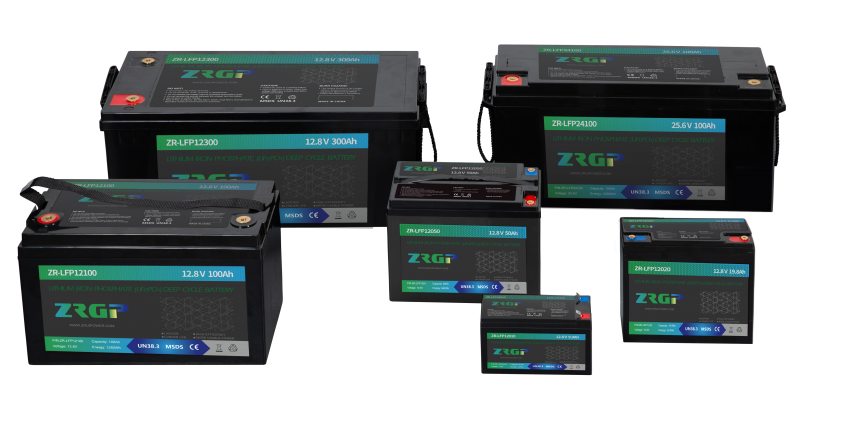LiFePO4 vs Lithium-Ion Weight
In the ever-evolving world of battery technology, LiFePO4 (Lithium Iron Phosphate) and Lithium-Ion batteries are two of the most popular types available today. Both have their unique advantages and applications, but one key factor often considered when choosing between them is weight. Why is battery weight so important, and how do these two types of batteries compare in this regard? Let’s dive in and find out!
Understanding LiFePO4 Batteries
Composition and Structure
LiFePO4 batteries are composed of lithium iron phosphate as the cathode material. This unique composition provides them with distinct characteristics compared to other lithium-based batteries.
Key Characteristics and Benefits
One of the primary benefits of LiFePO4 batteries is their long lifespan. They can endure thousands of charge cycles without significant degradation. Additionally, they are known for their safety, with a lower risk of overheating and combustion.
Common Applications
LiFePO4 batteries are widely used in applications requiring high safety standards and long cycle life, such as electric vehicles, solar energy storage, and various industrial applications.
Understanding Lithium-Ion Batteries
Composition and Structure
Lithium-Ion batteries typically use a lithium cobalt oxide cathode, although variations exist with different cathode materials like nickel manganese cobalt (NMC) and lithium manganese oxide (LMO).
Key Characteristics and Benefits
Lithium-Ion batteries are known for their high energy density, which means they can store a significant amount of energy in a relatively small and light package. This makes them ideal for portable electronics and other applications where space and weight are critical factors.
Common Applications
These batteries are commonly found in smartphones, laptops, power tools, and increasingly in electric vehicles and renewable energy systems.
Comparing LiFePO4 and Lithium-Ion Batteries
Weight Differences
When it comes to weight, Lithium-Ion batteries generally have the upper hand. They tend to be lighter than LiFePO4 batteries for the same energy capacity. This is due to their higher energy density, allowing more energy storage in a smaller, lighter package.
Energy Density Comparison
Lithium-Ion batteries boast a higher energy density compared to LiFePO4 batteries. This means they can store more energy per unit of weight, making them more efficient for applications where weight is a critical factor.
Lifespan and Durability
LiFePO4 batteries shine in terms of lifespan and durability. They can endure more charge-discharge cycles than Lithium-Ion batteries, making them a better long-term investment despite their heavier weight.
Safety Features
Safety is another area where LiFePO4 batteries excel. They are less prone to thermal runaway and overheating, reducing the risk of fires. Lithium-Ion batteries, while generally safe, do have a higher risk of overheating and require more robust safety management systems.
Cost Analysis
Cost is always a significant consideration. LiFePO4 batteries are generally more expensive upfront but offer longer life and better safety, which can translate to cost savings over time. Lithium-Ion batteries, being lighter and having higher energy density, are often chosen for applications where these factors outweigh the initial cost.
Weight Considerations in Different Applications
Automotive Industry
In electric vehicles (EVs), weight is a crucial factor affecting range and performance. While LiFePO4 batteries offer better safety and lifespan, the lighter Lithium-Ion batteries are often preferred to maximize the vehicle’s range and efficiency.
Renewable Energy Storage
For solar and wind energy storage, where space and weight are less of a concern, the durability and longevity of LiFePO4 batteries can be more advantageous. However, for portable renewable energy solutions, the lighter weight of Lithium-Ion batteries might be preferred.
Portable Electronics
The high energy density and lighter weight of Lithium-Ion batteries make them the go-to choice for smartphones, laptops, and other portable electronics, where every gram counts.
Aviation and Aerospace
In aviation and aerospace, every kilogram saved translates to better fuel efficiency and performance. Hence, Lithium-Ion batteries are often favored despite their higher safety management requirements.
Why Weight Matters
Impact on Performance and Efficiency
Battery weight directly impacts the performance and efficiency of various devices and vehicles. Lighter batteries can improve the speed, range, and overall efficiency of electric vehicles and portable electronics.
Transportation and Handling Ease
Lighter batteries are easier to transport and handle, reducing logistical costs and labor. This is particularly important for large-scale deployment in renewable energy and industrial applications.
Environmental Implications
Reducing battery weight also has environmental benefits. Lighter batteries mean less energy consumed in transportation and better fuel efficiency in electric vehicles, contributing to lower carbon emissions.
Conclusion
When choosing between LiFePO4 and Lithium-Ion batteries, weight is a significant factor to consider, especially in applications where performance and efficiency are paramount. While Lithium-Ion batteries typically offer a lighter and more energy-dense solution, LiFePO4 batteries provide unparalleled safety and longevity. Ultimately, the choice depends on the specific requirements of the application, balancing weight, safety, lifespan, and cost.
FAQs
What are the primary differences between LiFePO4 and Lithium-Ion batteries?
LiFePO4 batteries are known for their safety and long lifespan, while Lithium-Ion batteries are lighter and have higher energy density.
Which battery type is lighter?
Lithium-Ion batteries are generally lighter than LiFePO4 batteries for the same energy capacity.
How does battery weight affect electric vehicle performance?
Lighter batteries can improve the speed, range, and overall efficiency of electric vehicles.
Are there any safety concerns related to battery weight?
While weight itself isn’t a safety concern, lighter Lithium-Ion batteries require robust safety management systems to prevent overheating and thermal runaway.
What is the future of lightweight battery technology?
Emerging technologies like solid-state and graphene-based batteries promise even lighter and more energy-dense solutions, potentially transforming the battery landscape.



